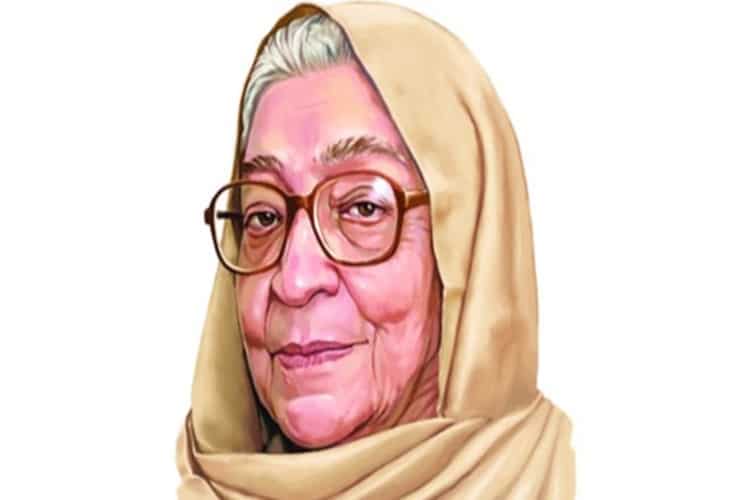Krishna Sobti (18 February 1925 – 25 January 2019) was a renowned Indian Hindi-language fiction writer and essayist.
Life and Career
Krishna Sobti was born on 18 February 1925, in Gujrat, Pakistan. She completed her education in Punjab and later moved to Delhi, where she spent most of her life. Sobti’s experiences during Partition left a lasting impact on her, shaping her literary voice and themes.
Krishna Sobti pursued her education in Lahore, where she graduated with a degree in Bachelor of Arts. Her literary pursuits were honed through her voracious reading habits and deep engagement with literature from various cultures and languages.
Sobti began her literary career with short stories and essays. Her writing style was marked by its boldness, experimentation, and exploration of themes such as sexuality, identity, and societal norms. She gained recognition for her novel “Mitro Marjani” (To Hell with You, Mitro), published in 1966, which challenged traditional gender roles and explored the complexities of human relationships.
Throughout her career, Sobti authored several novels, short stories, and essays, earning critical acclaim and a dedicated readership. Some of her notable works include “Zindaginama,” “Dil-o-Danish,” and “Surajmukhi Andhere Ke.” She was celebrated for her fearless portrayal of the female experience and her ability to capture the essence of human emotions with depth and sensitivity.
He passed away on 25 January 2019 (age 93 years), in New Delhi.
Award and Legacy
Krishna Sobti’s literary achievements were recognized with numerous awards and honors throughout her illustrious career. One of the most prestigious accolades she received was the Sahitya Akademi Award in 1980 for her novel “Zindaginama.” This award, bestowed by the National Academy of Letters in India, underscored Sobti’s profound impact on Hindi literature and cemented her status as a literary luminary.
In addition to the Sahitya Akademi Award, Sobti was also honored with the Jnanpith Award, one of India’s highest literary honors, in 2017.
Krishna Sobti’s legacy extends far beyond the accolades she received during her lifetime. Her fearless exploration of themes such as gender, identity, and societal norms challenged prevailing conventions and paved the way for a new wave of Hindi literature. Sobti’s writing was characterized by its boldness, experimentation, and deep empathy for the human experience, earning her a dedicated readership and critical acclaim.
As a pioneering female writer in a male-dominated literary landscape, Sobti shattered stereotypes and opened doors for future generations of women writers. Her works continue to resonate with readers for their timeless relevance, insightful commentary on society, and profound exploration of the human condition.

